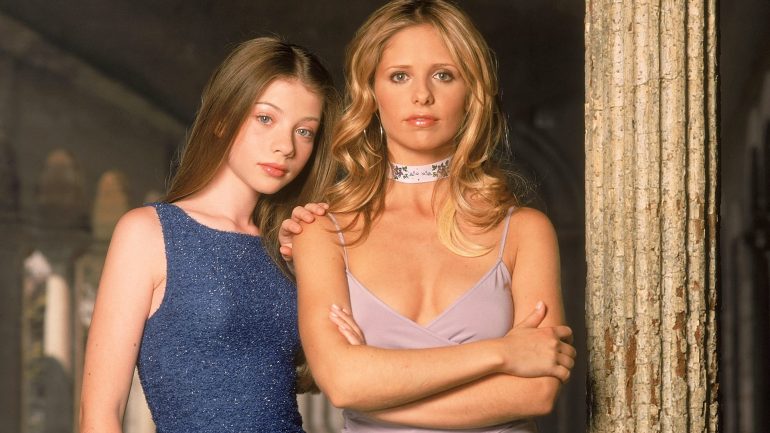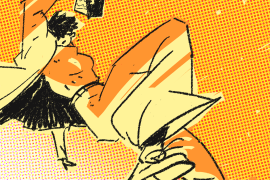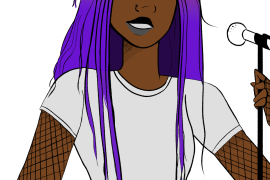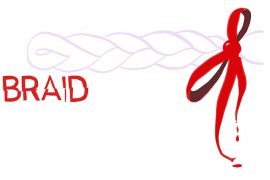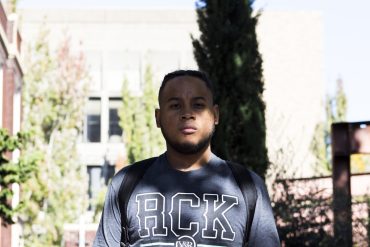Spoilers for Buffy the Vampire Slayer seasons 5–7
February 26, 2025. News breaks that Michelle Trachtenberg (1985–2025) has died. Known for her roles in “Gossip Girl,” “Harriet the Spy,” “Ice Princess,” and, of course, “Buffy the Vampire Slayer,” Trachtenberg was promptly mourned by dedicated fans and casual followers alike, remembering her impact on their adolescence or lamenting her early and tragic fate.
September 26, 2000. The season five premiere of “Buffy” airs, and at the end of the episode viewers get a shock: Buffy Summers, the titular vampire Slayer, has a sister. Everything fans think they know has suddenly, drastically changed.
Dawn Summers had an undeniable and important impact on the trajectory of “Buffy,” but she wasn’t accepted with open arms, and neither was Trachtenberg. Dawn was special to the show and to Trachtenberg herself, the same age as her character when she debuted, and I want to take a look back at Dawn’s story, her impact, and why she matters—to Trachtenberg and to all of us fans of “Buffy”.
In the wake of the actor’s death, fans have been revisiting her iconic roles, but Dawn has gotten little attention. It’s easy to trace back why. Her introduction, which placed her not as a new character we had to get to know but instead as an established member of the “Scoobies” team, altered the perception of her role in the story and gaslit viewers in one fell swoop.
[To include ↓ Dawn’s introductory scene]
INT. BUFFY’S BEDROOM – DAY (DAY FIVE)
Buffy pops in to grab her jacket. The room is semi-packed-up for college and it’s a mess.
In the middle of it all – rifling through one of Buffy’s boxes – is DAWN, 14. She’s pretty, awkward, faintly obstinate – and she’s Buffy’s little sister.
BUFFY
What are you doing in here?
Dawn’s about to reply when Joyce’s voice calls in from the hall.
JOYCE (O.C.)
Buffy? If you’re going out – why
don’t you take your sister with you?
A beat. Then both Dawn and Buffy shout in protest-
BUFFY & DAWN
(together)
MOM!!
BLACK OUT.
END OF SHOW
The following episode, “Real Me,” was Dawn-centric, the first real taste we were given of who she was: an immature, whiny, and argumentative 14 year old. The audience that had grown up alongside Buffy wasn’t a fan of a character so downright irritating. It didn’t help that Buffy and their mother, Joyce, were so prone to infantilize Dawn, requiring babysitters for her and shielding her from the realities of Buffy’s role as the Slayer, even though she wasn’t much younger than Buffy herself was when she inherited the role. Things only got worse for Dawn’s perception in season six, “where her character was largely stuck complaining, moaning, and getting on people’s nerves,” James Hunt wrote for Screen Rant.
Dawn was hated with a passion, and that hatred defined many fans’ opinions of the later seasons and shaped reactions to the young Trachtenberg. In an interview with IGN Filmforce, show creator Joss Whedon commented on fan reactions and Dawn’s unrealized potential: “In season six, people were like, ‘Oh, she whines so much.’ I sort of scratched my head. I was like, ‘Excuse me, she’s been abandoned by about six parental figures. The girl has huge issues.’ At the same time I was like, ‘You get it… we sort of run the same note for a while, they’re not wrong.’”
Dawn’s only crime was being an “annoying” teen girl, but it was enough for viewers to ignore the importance she had. Her story wasn’t simple: originally a mystical energy known as the Key, Dawn was given a human form and placed as Buffy’s sister. False memories were implanted into the people around her to make them believe she’d always been a part of their lives. Finding out the truth of her existence rattles Dawn, and she resorts to more acting out and self-harm. She’s terrified to discover she isn’t even real, and it only gets worse when her mother dies suddenly from an aneurysm and the big bad of the season, a hell god called Glory, is hunting Dawn down to use her blood to break down dimensional barriers. To save the world and, more importantly, her little sister’s life, Buffy sacrifices herself, realizing their blood is the same.
Season six shifts Dawn into a whole new perspective. She isn’t whiny and annoying, this is a deeply traumatized girl, trying her best to find where she belongs in a complicated world, alone. Her existence doesn’t just open the story up to an important and non-romantic relationship for Buffy, but she humanizes “evil” vampire Spike, unites the rest of Buffy’s friends with a common goal, and injects the consequences of this life back into the world.
Despite her origin, Dawn is a normal girl in seasons six and seven. She commits herself to fighting demons and vampires with her sister not because she’s a “Chosen One” with a sacred duty, and not because she has some special skill that makes her particularly able to help. She does it because she wants to, because of her love for her friends and the family they’ve become. She doesn’t turn her back or shield her eyes, she picks up a sword and a book and molds herself into the kind of brave young woman she wants to become. No one chose Dawn’s fate for her—she did that all on her own.
“you didn’t hate dawn summers,” User fang3d4 writes in a Tumblr post from 2024, “you probably were her. Btvs gave us 4 seasons of putting ourselves in the shoes of supers. Sure, every demon was a metaphor for the struggle of growing up, but there was a separation… And then there was a lonely teenage girl, sitting alone on her couch, watching the supers and wishing she could be them. And that was probably way closer to home.”
I can’t hate Dawn. I can only hope that the teen girl I was would have been as brave and resilient as she was in her situation. So many of us wanted to be in worlds like the “Buffyverse” or from the fantasy novels we read, but how many of us could have handled going through what Dawn did? She represents the best of us, the fans, and by extension so does Michelle Trachtenberg. That is her Buffy the Vampire Slayer legacy: she won’t be remembered as whiny or pathetic, but as brave as teenage girls can truly be.

